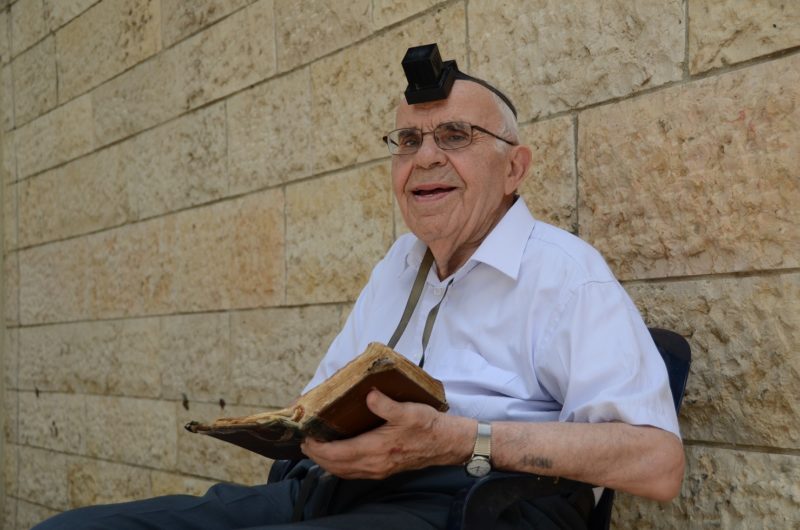
Menachem Haberman
“Arriving at Auschwitz was like standing at the gates of hell. We went through the “selection” right upon disembarking onto the ramp, and I got separated from my mother and younger brothers. They were directed towards the chimneys. When I saw my mother was having trouble handling the children on her own, I decided to leave the adults line and hurried to help her. My younger brother, Benjamin, was sick with fever and sobbing. I took him away and tried to sooth him. Suddenly, we were approached by a tall, robust prisoner who ordered me firmly to hand the child over to my mother and go back into the line. I did it while looking into Benjamin’s tearful eyes. He waved goodbye with his little hand, and I had no idea this was the last time I would ever see him, or anyone else from my family. This image is etched on my mind ever since, I see it every single day.
After this hasty farewell I was called to sit at a table where a number was tattooed on my forearm. From that moment on, I was no longer Menachem Haberman. My sole identity was A-10111. Despite the searing pain I did not make a sound. I was afraid any cry of pain would mean a death sentence, and I wanted to live. I knew I had to summon all of my mental vigor in order to withstand that horrible reality, and not turn into smoke in an Auschwitz chimney.
I had so many moments of hanging by a thin thread between life and death. Staying alive in each of those occasions felt like a miracle. I come from a Hassidic family with a deeply rooted faith, and I kept believing in God in spite of all the atrocities I had experienced. Having survived the selection, Auschwitz, the Death March to Germany and Buchenwald camp, I do believe my survival could be at least partly attributed to the profound faith in God.
While in Auschwitz, I could never tell when it was Passover, or Yom Kippur, or Rosh Hashanah. However, I knew I must retain my bond with the Jewish faith. There was a set of Tefillin in Buchenwald camp, in block number 59, and I would take any opportunity to stand in line, even in the freezing cold, and wear the Tefillin on my forehead, saying: “Hear, O Israel, the Lord our God, the lord is one”. This immortal verse charged me with power and strengthened my belief in the existence of God. It also made me feel I was still “normal”, not just a sac of bones with a number tattooed on it.
Notwithstanding the holocaust, I believe in God. And yet, I have friends who lost their faith in God because of the holocaust. Faith is a very personal thing, each to his choice. I always felt that despite the horrendous destruction we must continue the lineage of the Jewish People and maintain our faith. Without it, I don’t think I would have been able to survive and tell you my story now.”
